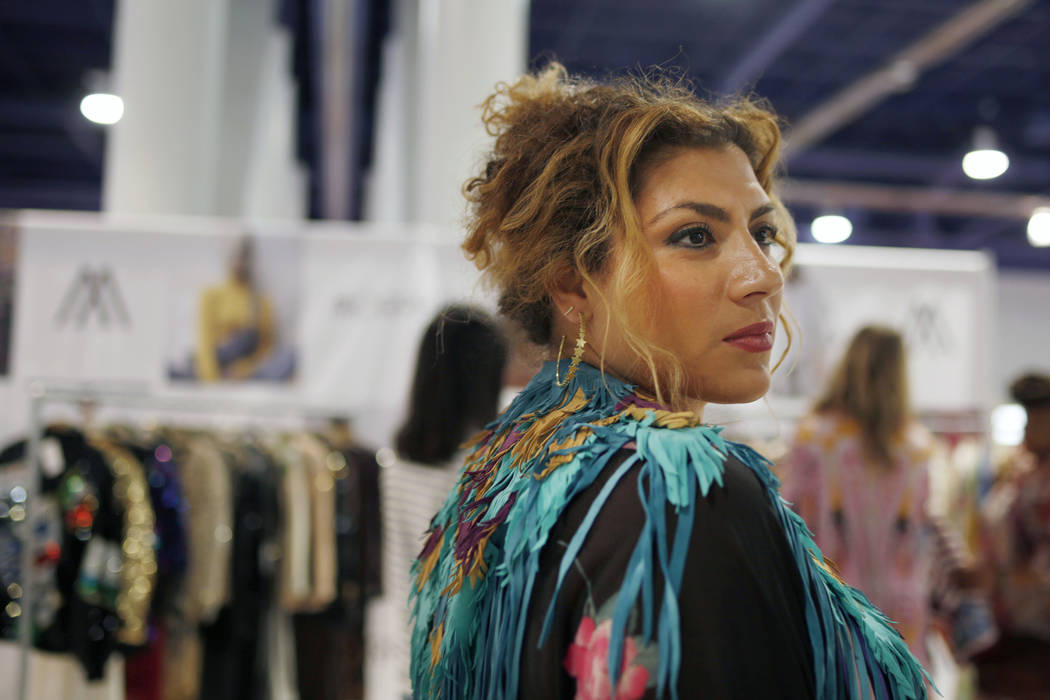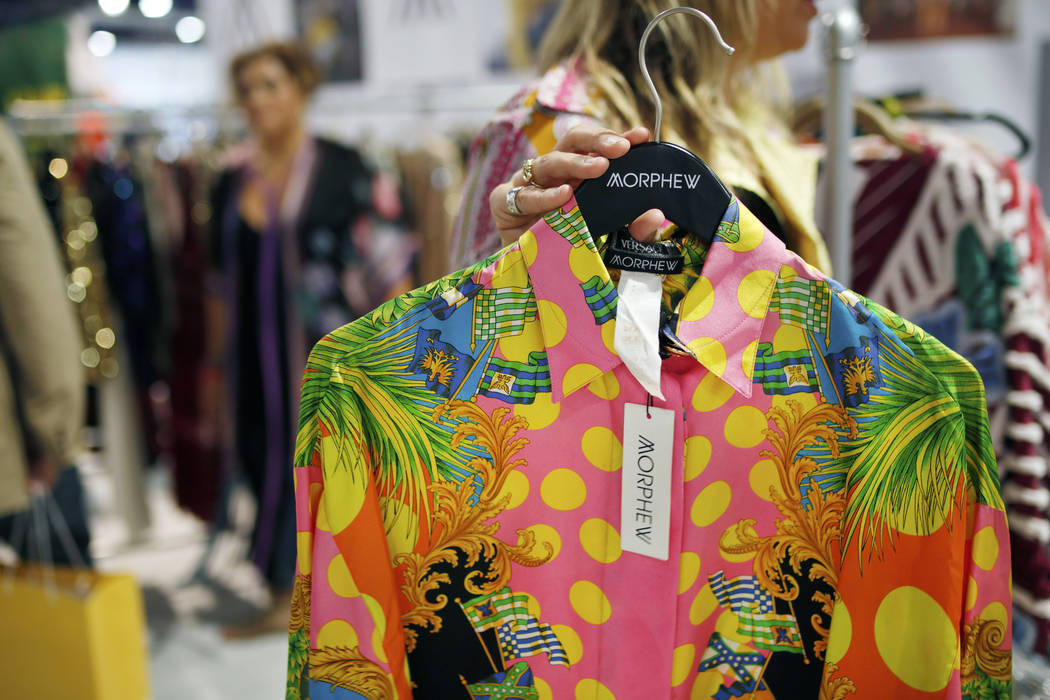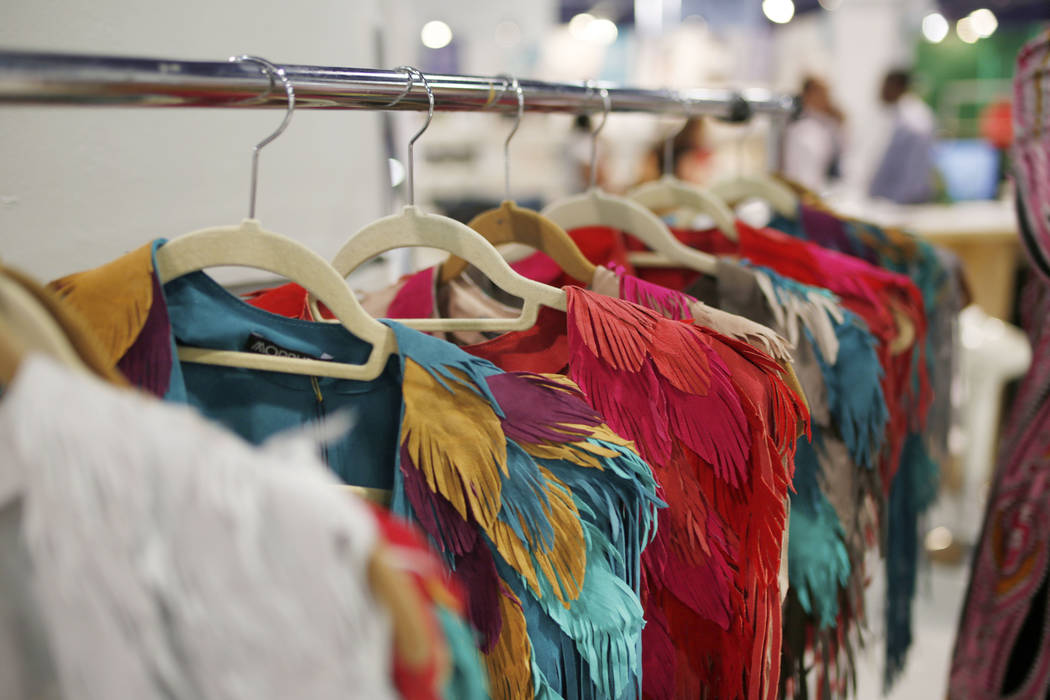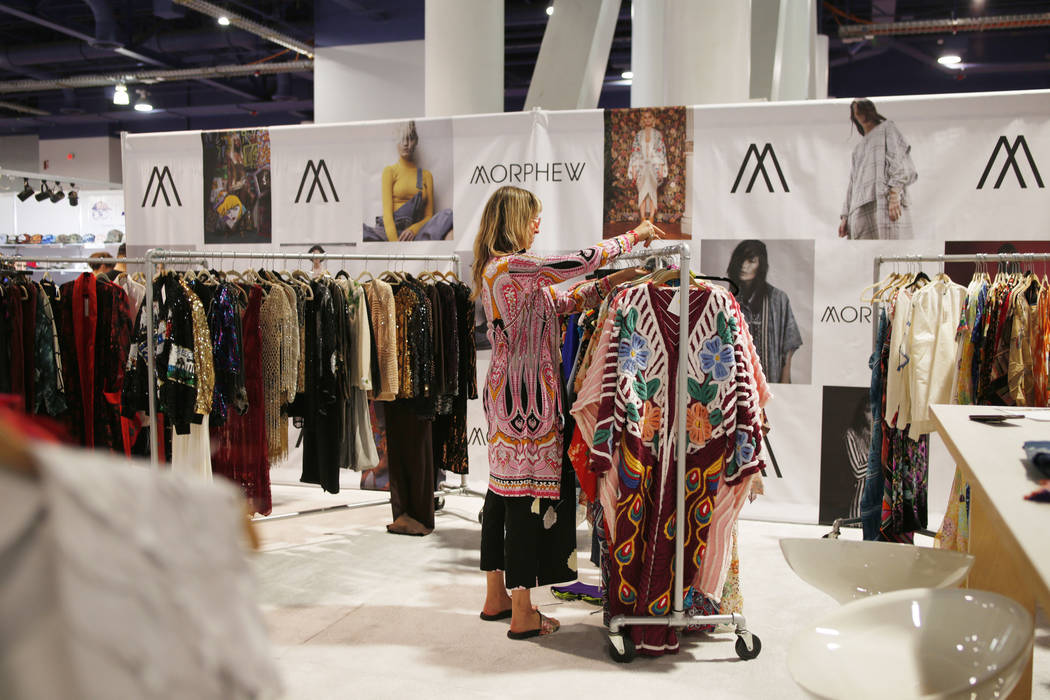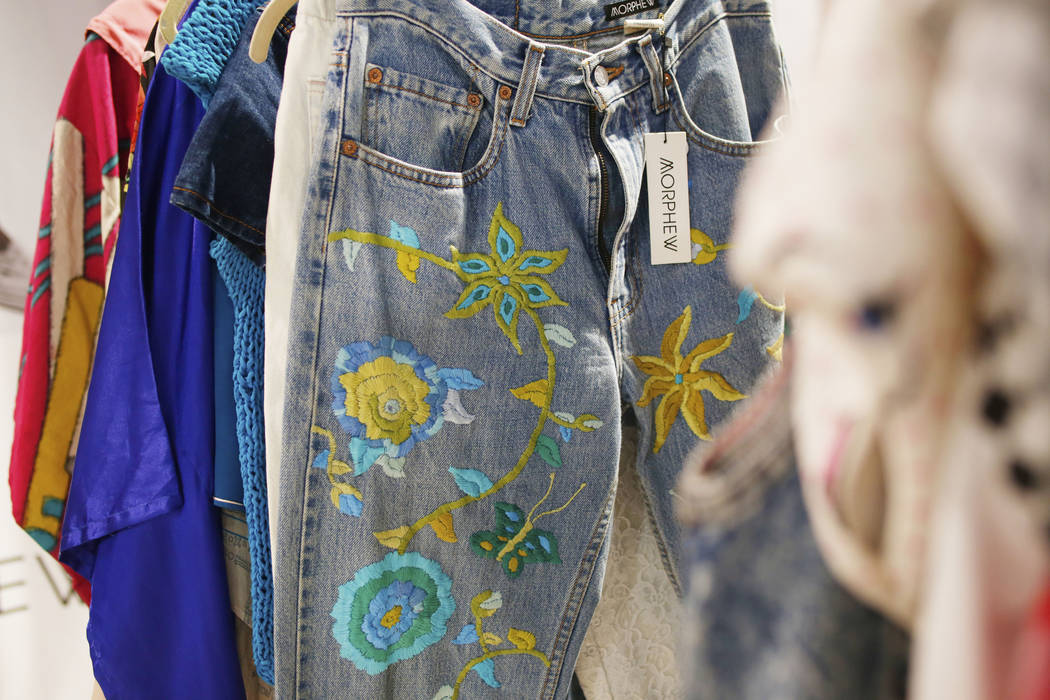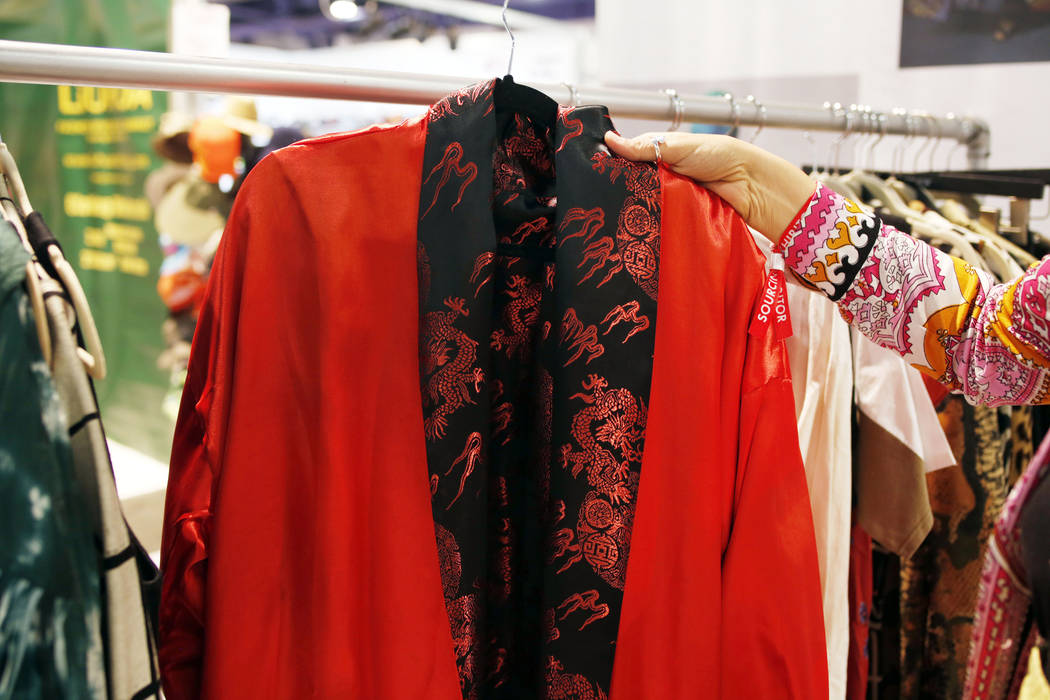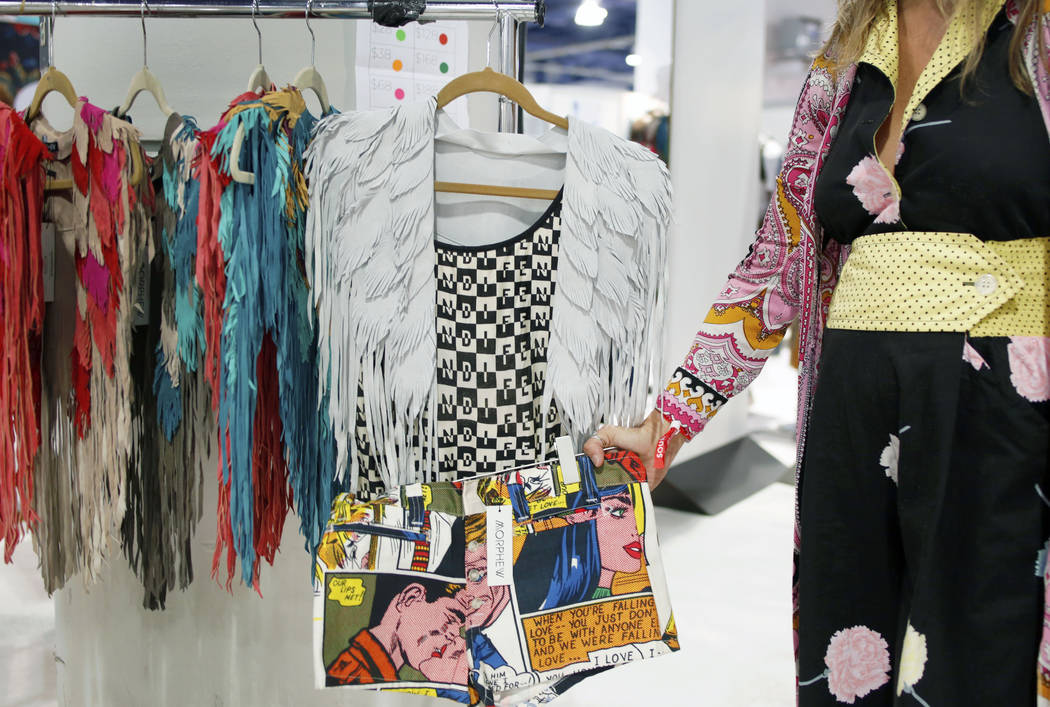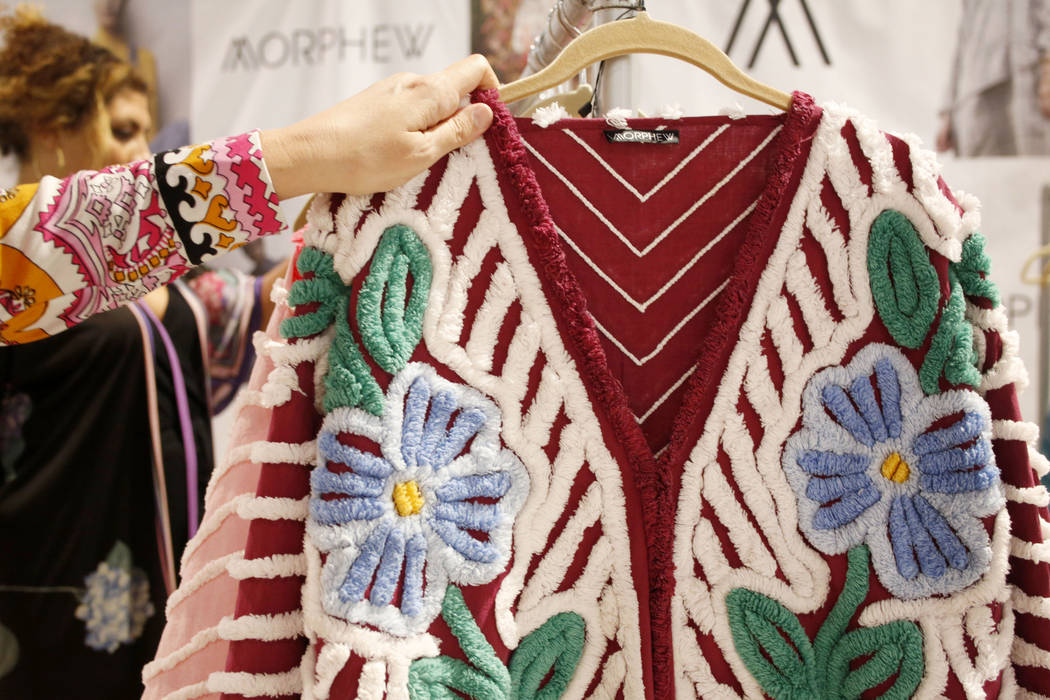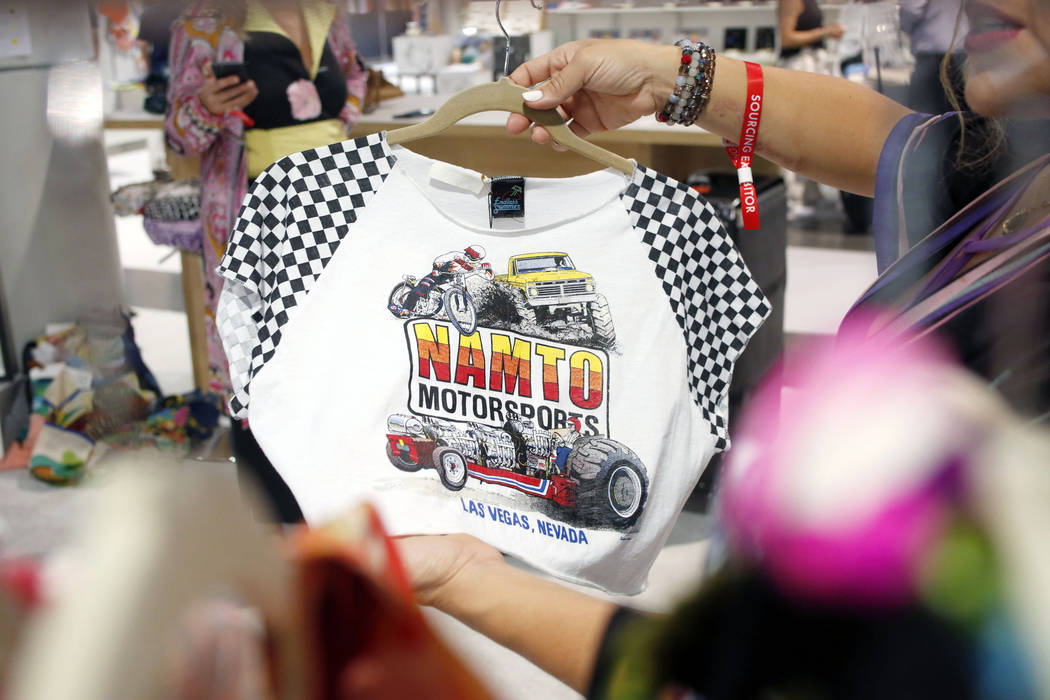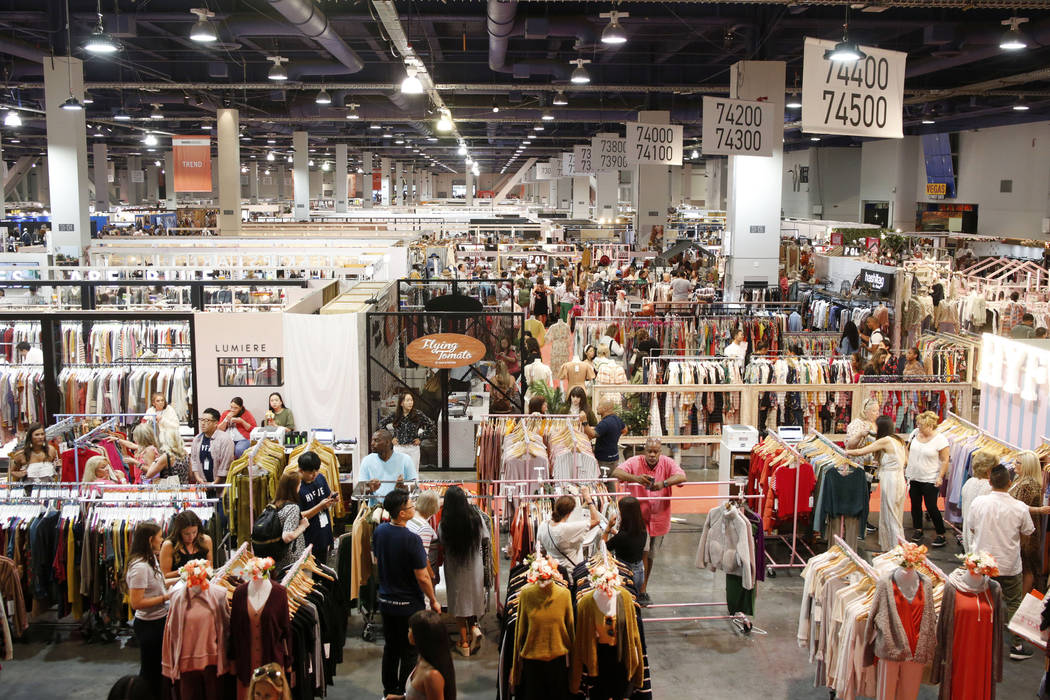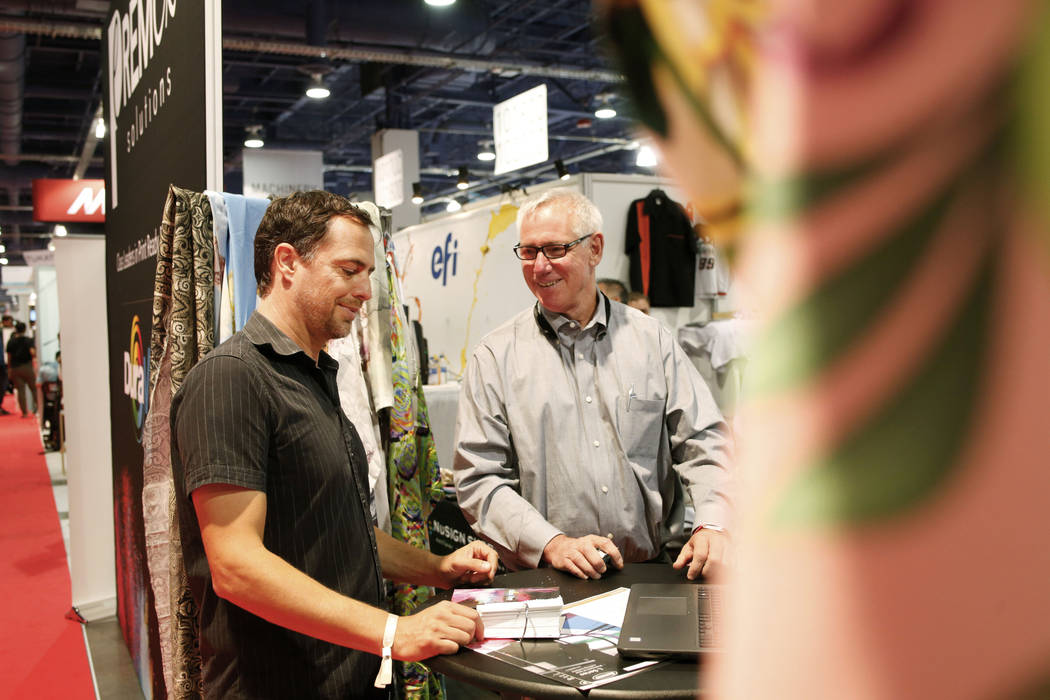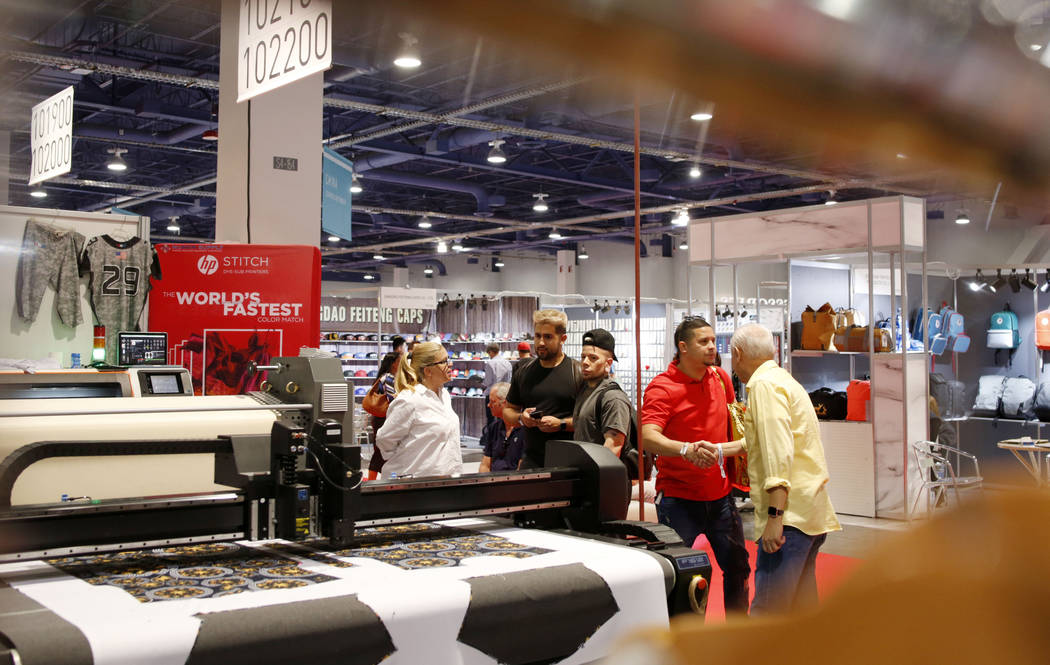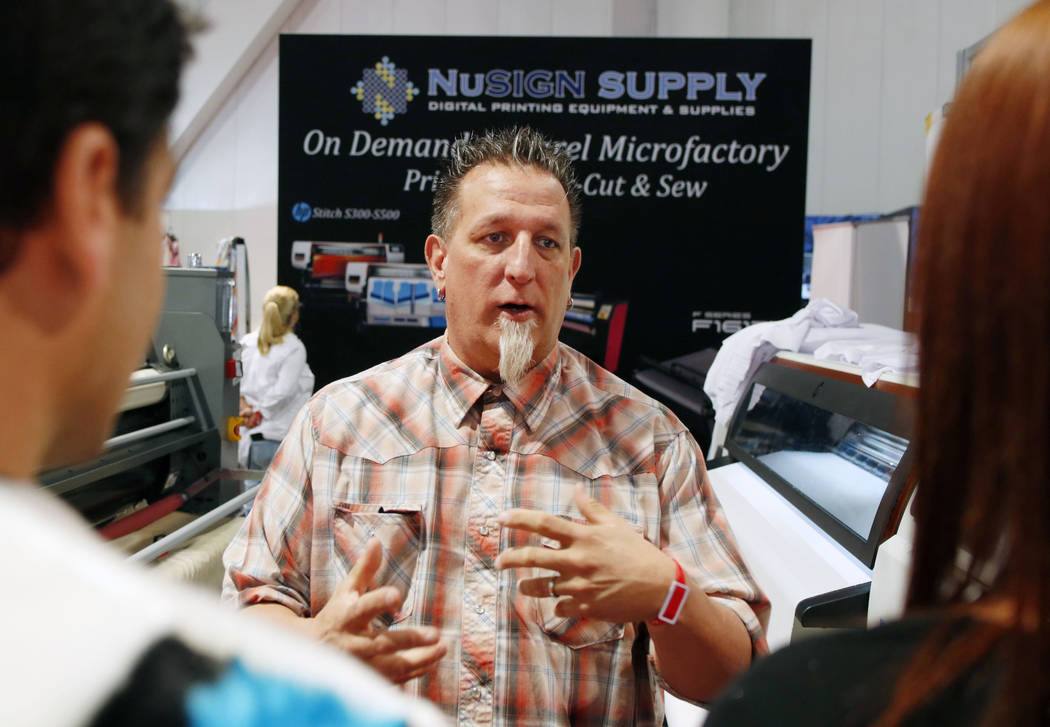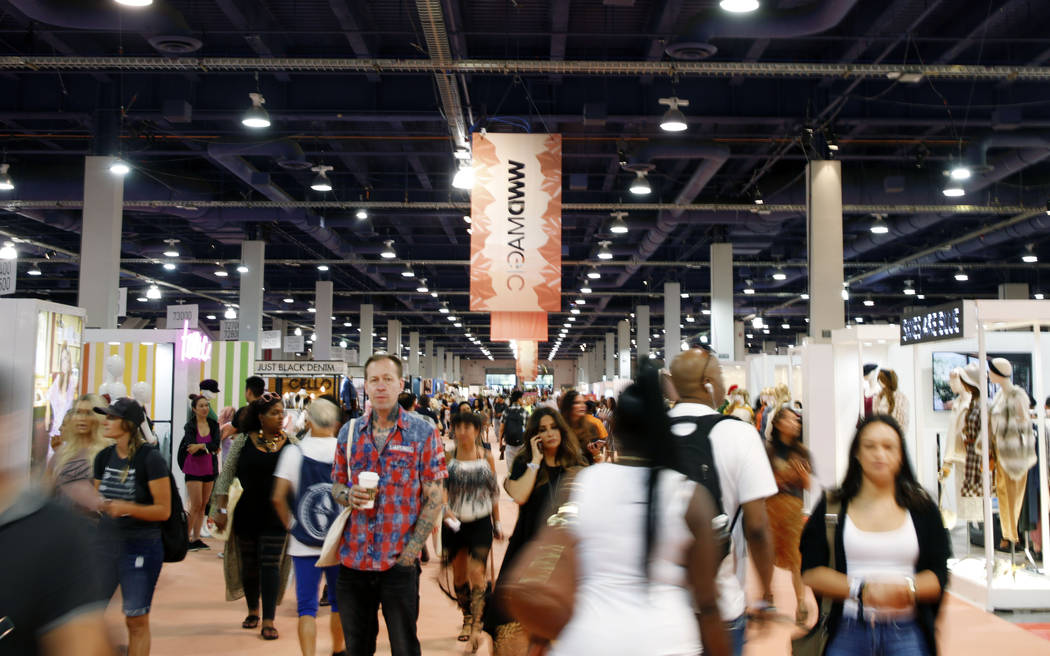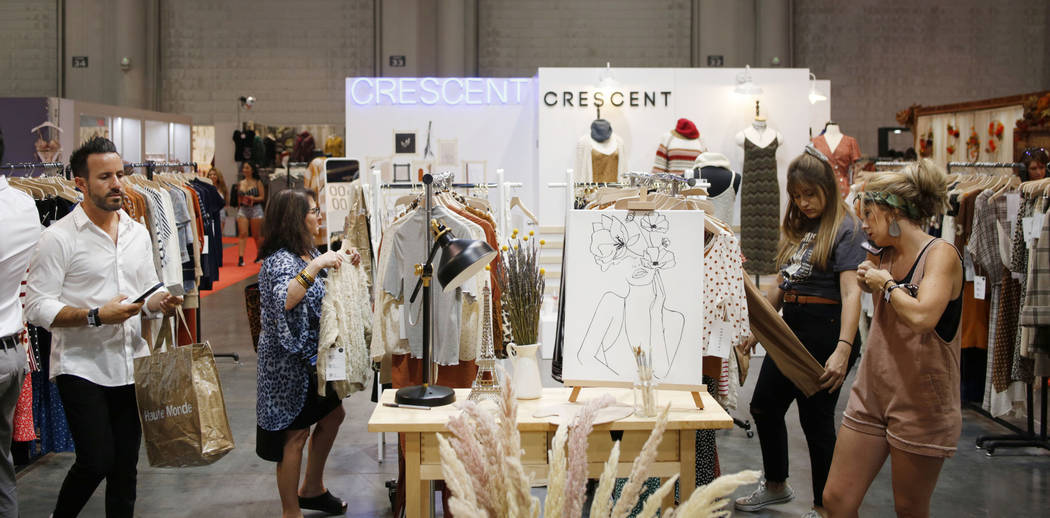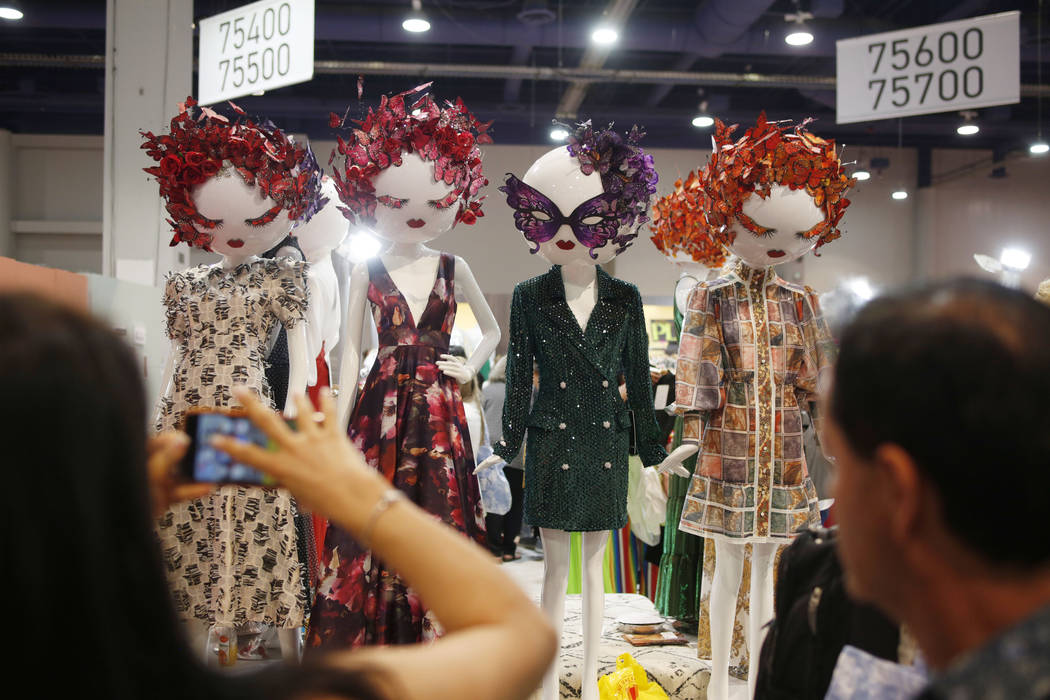MAGIC 2019: US-China trade war helping some US-based manufacturers
Retailers breathed a temporary sigh of relief Tuesday following the Trump administration’s announcement to delay tariffs on some Chinese imports such as shoes, clothing and consumer electronics.
But for a group of U.S.-based manufacturers exhibiting together at this week’s fashion trade show MAGIC Las Vegas, the U.S.-China trade tensions have boosted their bottom line.
Fashion manufacturer Golden Green’s roster of high-profile clients is bringing more business to the Los Angeles-based company, said Kurt Lester, Golden Green’s vice president of sales and marketing.
“Most of them have moved everything (from China),” Lester said. “Tommy Hilfiger had their last factory in China and moved last month. Nordstrom still has some but were moving a lot of stuff to Indonesia and Vietnam.”
Lester said the company’s retail clients have been able to receive their products much faster, but they are likely paying about 10 percent more than they would have compared with overseas manufacturers before the trade war began.
A short walk east of Golden Green’s booth featured a hub of U.S. manufacturers showcasing everything from billboards upcycled into messenger bags to a large digital printer making T-shirts.
Tek Tailor Founder and Chief Executive Steffen Kuehr, who manufactures the messenger bags among other items, said he has seen more requests from smaller brands because of “the uncertainty of overseas.”
The new round of tariffs was expected to start Sept. 1 but have been pushed back until Dec. 15 after pressure from retailers and other businesses who were concerned about the impact it would have on holiday sales.
The administration said it still plans to implement its 10 percent tariffs on about $300 billion in Chinese imports such as cellphones, laptops and computer monitors and apparel and footwear.
Mark Sawchak, partner at digital textile printing and fabric company PremEx Solutions, said many of its competitors in the fabric industry, who source from China, are finding their Chinese partners offering to share some of the tariff costs.
Sawchak added that “they can only share up to a certain extent,” and many U.S. companies still have to charge clients a higher price.
“The fact that we have fabrics being sourced not in China, we’re getting an advantage over some companies that are sourcing from China,” he said.
The key to sustaining benefits from the trade war — for those who can — will be making sure domestic manufactuerers can meet the potential increase in capacity, according to Kai Buskirk, event curator for SOURCING at MAGIC.
“We don’t have across the board the capability and the capacity to absorb that onshoring, but we’re doing what we can with our current manufacturing base across the U.S. to answer that call,” he said.
MAGIC runs through Wednesday at the Las Vegas Convention Center.
Contact Subrina Hudson at shudson@reviewjournal.com or 702-383-0340. Follow @SubrinaH on Twitter.



